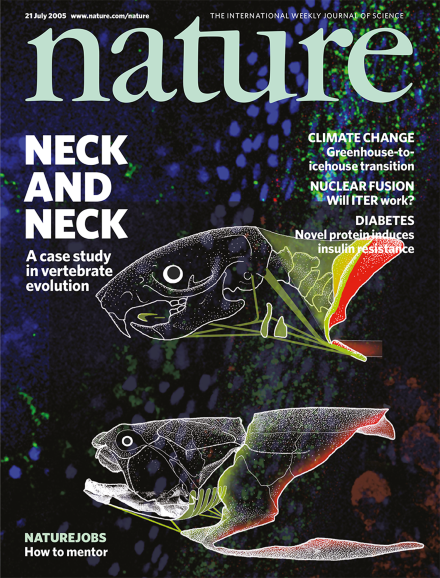Volume 436 Issue 7049, 21 July 2005
Editorial
Research Highlights
News
News in Brief
News Feature
Business
Correspondence
Books & Arts
News & Views
Brief Communication
Article
Letter
Prospects
Postdocs and Students
-
Learning to mentor
Career Guide:

